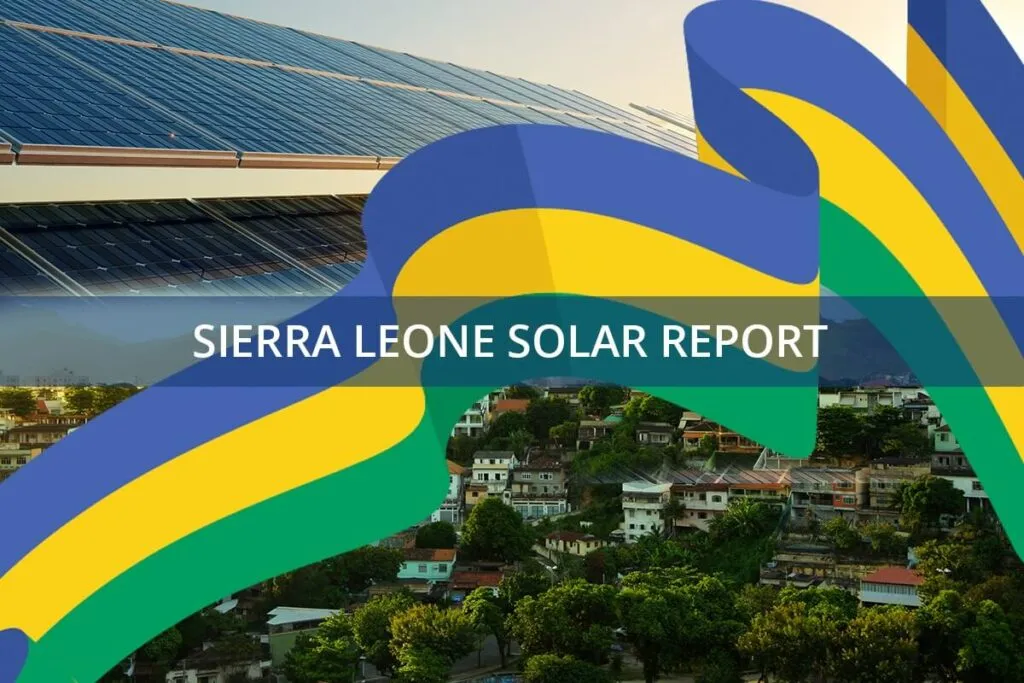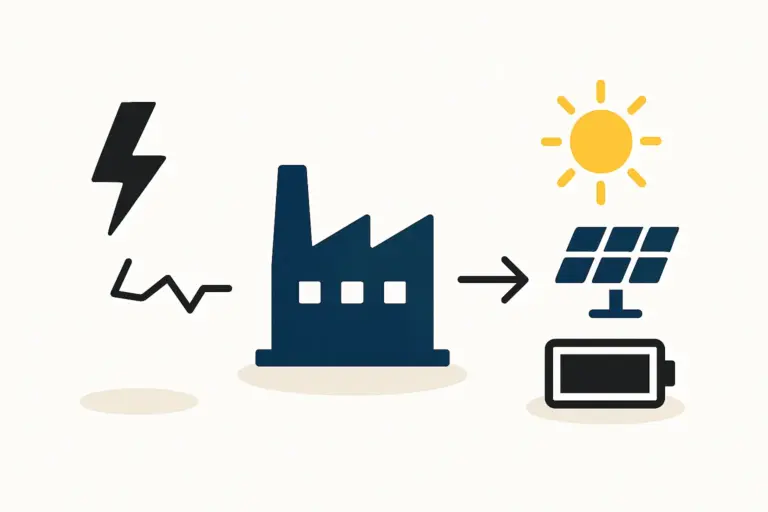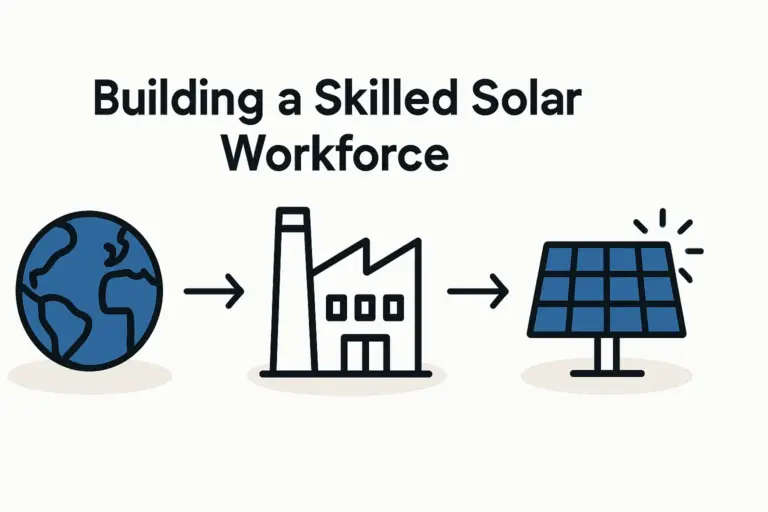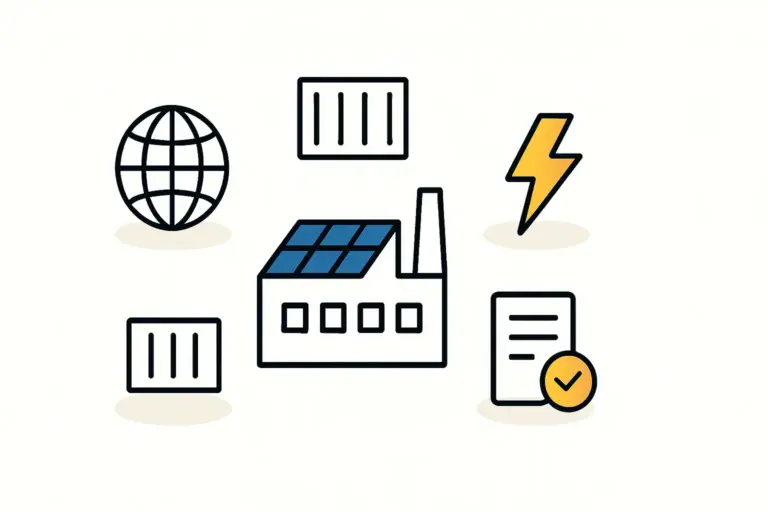Leveraging a ‘Made in Sierra Leone’ Status for Regional Market Access
For any entrepreneur in the solar manufacturing sector, choosing a factory’s location is a critical strategic decision. While factors like labor costs and infrastructure are paramount, the geopolitical and economic landscape holds often-overlooked opportunities.
A factory in Sierra Leone, for example, is more than just a production site for the domestic market. It’s a strategic gateway to the entire Economic Community of West African States (ECOWAS), a market of nearly 450 million people.
Leveraging local production status for preferential access to this vast regional market can transform a business plan from merely viable to highly profitable. The key lies in navigating regional trade agreements, which allow locally manufactured goods to cross borders without the import tariffs applied to products from China, Europe, or North America.
The Scale of the ECOWAS Opportunity
The demand for reliable energy in West Africa is immense and growing. The ECOWAS region alone is projected to require at least 25 GW of new power generation capacity by 2030, with a significant portion expected to come from solar energy. This creates a substantial, long-term market for locally produced solar modules.
An entrepreneur with a solar panel manufacturing business plan focused solely on a single national market risks missing this larger opportunity. A strategy incorporating regional exports from day one, however, unlocks greater economies of scale, higher revenue potential, and a more resilient business model. The key to this potential is the ECOWAS Trade Liberalization Scheme (ETLS).
Understanding the ECOWAS Trade Liberalization Scheme (ETLS)
The ETLS is the primary tool for promoting trade within West Africa. It aims to create a free trade area by eliminating customs duties, tariffs, and non-tariff barriers on goods from member states.
For a solar module manufacturer in Sierra Leone, this means products labeled ‘Made in Sierra Leone’ can be sold in Nigeria, Ghana, Senegal, or any other member state without incurring import taxes. This tariff exemption provides a powerful competitive advantage. Solar modules imported from outside the region are subject to tariffs that increase their final price, making a locally produced, tariff-free alternative that much more attractive to regional buyers.
The Deciding Factor: Rules of Origin (RoO)
Gaining tariff-free access is not automatic; products must meet the ECOWAS ‘Rules of Origin’ (RoO) criteria to qualify. These regulations ensure that the benefits of the free trade agreement go to genuine producers within member states, not just to companies performing minimal assembly of foreign parts.
For industrial products like solar modules, the two primary criteria are:
-
Wholly Obtained: The goods must be entirely produced or obtained within the ECOWAS region. This is rarely applicable to solar module manufacturing, as key raw materials like solar cells are often imported.
-
Sufficient Transformation: The goods must have undergone substantial or ‘sufficient’ processing within an ECOWAS member state. This is the most relevant rule for solar manufacturing.
To be considered ‘sufficiently transformed,’ a product’s manufacturing process must change its customs tariff classification. Additionally, the value of raw materials from non-ECOWAS countries cannot exceed a certain percentage of the finished product’s total cost.
The complex industrial process of assembling a solar module—from tabbing and stringing cells to lamination, framing, and testing—typically qualifies as sufficient transformation. Those interested in the specific steps involved can find detailed guides on how to start a solar panel manufacturing business that cover these production stages.
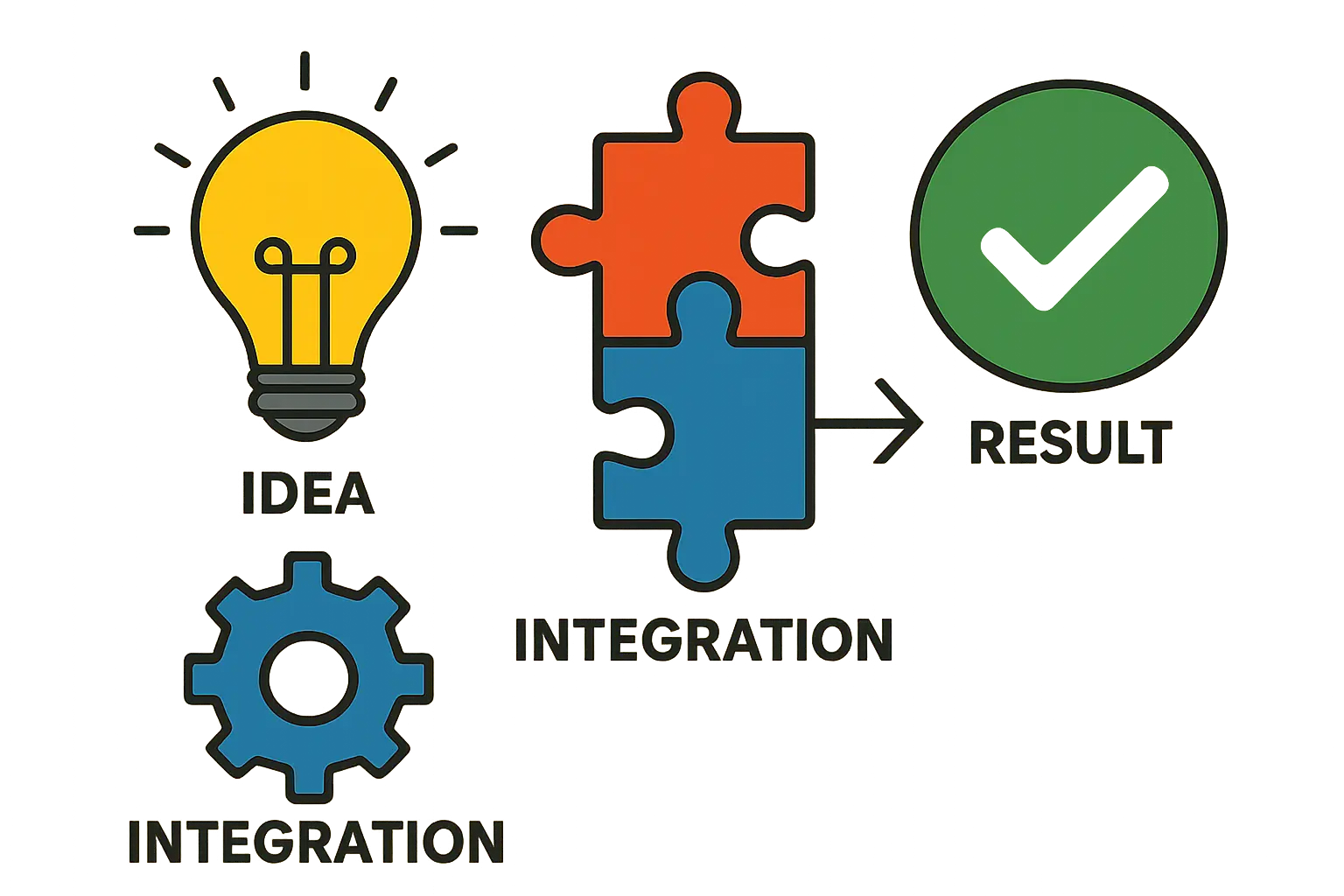
The Key to Access: The Certificate of Origin
The official document proving a product meets the Rules of Origin is the ECOWAS Certificate of Origin. This certificate acts as a passport for the goods, verifying their originating status and granting them preferential tariff treatment at the borders of other member states.
Obtaining this certificate involves a formal application process with the designated national authority in Sierra Leone, typically the Ministry of Trade and Industry or the Chamber of Commerce. The manufacturer must provide detailed documentation about the production process, the bill of materials, and cost structures to prove that the ‘sufficient transformation’ criteria have been met.
Experience from J.v.G. turnkey projects in emerging markets shows that meticulous documentation and a clear understanding of the application requirements are crucial for avoiding delays.
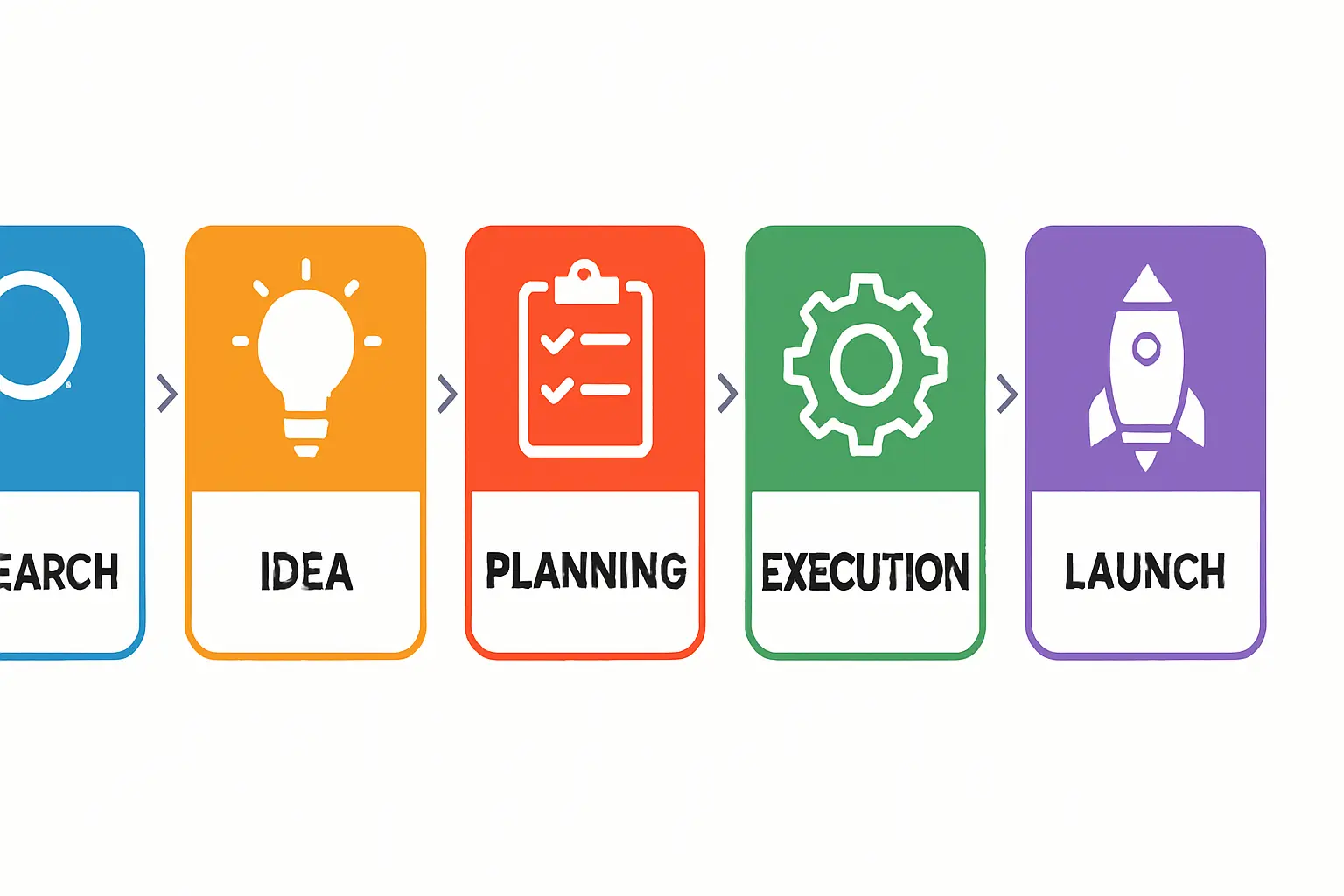
Strategic Advantages of Manufacturing in Sierra Leone for ECOWAS Export
Choosing Sierra Leone as a manufacturing base offers several distinct business advantages for accessing the regional market:
-
Tariff-Free Market Access: The most significant advantage, enabling competitive pricing in all 15 ECOWAS countries.
-
Reduced Logistics Costs and Time: Shipping finished modules from Freetown to Lagos or Abidjan is considerably faster and cheaper than from Asia or Europe, reducing working capital requirements and improving responsiveness to market demand.
-
‘Made in West Africa’ Brand Appeal: A growing preference for local or regional goods in government tenders and large private projects provides a powerful differentiator.
-
Proximity to Market: A regional presence allows for better customer service, technical support, and a deeper understanding of the specific needs of West African markets, such as high ambient temperatures and seasonal dust (the Harmattan).
Navigating Potential Challenges
While the opportunity is substantial, entrepreneurs should also be prepared for potential hurdles.
-
Bureaucratic Processes: Navigating the paperwork for the Certificate of Origin and cross-border logistics can be complex. Working with experienced local partners or consultants is highly advisable.
-
Infrastructure Consistency: While improving, logistical infrastructure like roads and ports can vary in efficiency across the region. Factoring potential delays into supply chain planning is a prudent measure.
-
Varying National Standards: Although ECOWAS aims for harmonization, some member states may have unique certification or quality standard requirements. Due diligence is essential before entering a new national market.
These challenges, however, are not insurmountable. With proper planning and expert guidance, such as that provided through structured turnkey solar module manufacturing lines, they become a manageable part of the business strategy.

Frequently Asked Questions (FAQ)
What are the 15 member countries of ECOWAS?
The member states are Benin, Burkina Faso, Cabo Verde, Côte d’Ivoire, The Gambia, Ghana, Guinea, Guinea-Bissau, Liberia, Mali, Niger, Nigeria, Senegal, Sierra Leone, and Togo.
Do I need to source all raw materials from within ECOWAS to qualify for the ETLS?
No. For most industrial goods, the key requirement is ‘sufficient transformation.’ You can import raw materials like solar cells and EVA film, as long as the manufacturing process in your factory in Sierra Leone is substantial enough to change the product’s nature and customs classification.
How difficult is it to obtain an ECOWAS Certificate of Origin?
The process is administrative and requires detailed documentation. While not inherently difficult, it demands precision and a thorough understanding of the requirements. First-time applicants often benefit from expert guidance to ensure their submission is correct and complete, avoiding common pitfalls and delays.
Does the ETLS eliminate all cross-border trade issues?
The ETLS eliminates tariffs but does not remove all administrative processes. Exporters must still comply with customs declarations, inspections, and other logistical procedures at border crossings. Non-tariff barriers, while reduced, can sometimes still pose challenges.
Can a foreign-owned company based in Sierra Leone benefit from the ETLS?
Yes. The Rules of Origin are based on where the product is made, not the nationality of the company’s owners. As long as the company is legally registered in Sierra Leone and the production facility meets the ‘sufficient transformation’ criteria, its products are eligible for ETLS benefits.

